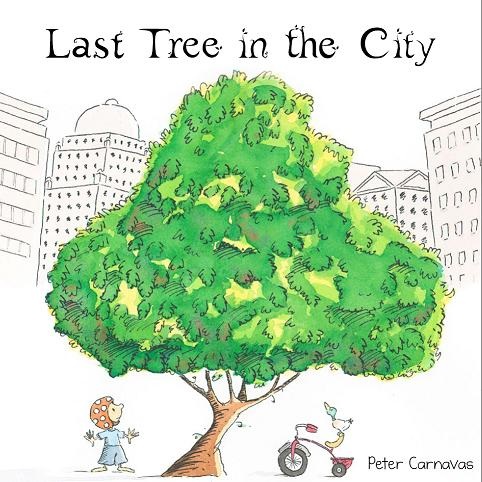A theory of action: If...then...
Click on the image below for a link to the story.
Read up to page 13. What is Edward's theory of action? Phrase it as a 'If...then...' statement.
Click on the image below for a link to the story.
Read up to page 13. What is Edward's theory of action? Phrase it as a 'If...then...' statement.
What would a Theory of Action look like in education?
If we have a Quality Teaching Framework then teaching and learning in schools will improve.
If boys have male role models who enjoy reading then they will enjoy reading themselves.
If students attend school regularlly then their learning will improve.
If you put students not at a reading level at a higher level then they will achieve at that level (accelerated literacy).
If Camdenville Public School gets involved in a Lesson Study approach then teaching and learning will improve.
If we teach students the Super 6 strategies then their comprehension will improve.
What is the purpose?
Solve a problem
Give steps to follow
Look at the bigger picture
Can be adjusted if the changes don't happen as anticipated - flexible
Initiate change - long term
Based on evidence/research
Do these theories of action achieve what they are trying to do? Why/why not?
Not always - too big to control the outside factors
Don't give specific steps along the way
Problems might be too big to be solved by one theory of action
Might be based on speculation - data might not be accurate or sufficient
Compare the two theories of action below. Which one is more effective? Why?
If we have a Quality Teaching Framework then teaching and learning in schools will improve.
If boys have male role models who enjoy reading then they will enjoy reading themselves.
If students attend school regularlly then their learning will improve.
If you put students not at a reading level at a higher level then they will achieve at that level (accelerated literacy).
If Camdenville Public School gets involved in a Lesson Study approach then teaching and learning will improve.
If we teach students the Super 6 strategies then their comprehension will improve.
What is the purpose?
Solve a problem
Give steps to follow
Look at the bigger picture
Can be adjusted if the changes don't happen as anticipated - flexible
Initiate change - long term
Based on evidence/research
Do these theories of action achieve what they are trying to do? Why/why not?
Not always - too big to control the outside factors
Don't give specific steps along the way
Problems might be too big to be solved by one theory of action
Might be based on speculation - data might not be accurate or sufficient
Compare the two theories of action below. Which one is more effective? Why?
1. IF we have professional learning communities, THEN student learning will
improve.
2. IF we have professional learning communities, THEN we will have a scheduled
time for teachers to discuss their work and the work students produce.
And IF teachers share their work and the results with each other, THEN they
will be able to learn from each other’s successes and draw upon the expertise of
their colleagues around common challenges.
And IF teachers draw upon the expertise and successes of their colleagues
around common challenges, THEN teachers will be able to incorporate new and
successful strategies into their practice with support from their
colleagues.
And IF teachers incorporate successful strategies into their practice, THEN
students will benefit from more effective teaching.
AND THEN student learning will increase
Reference for both examples: http://www.abeoschoolchange.org/blog/whats-a-theory-of-action-and-why-do-we-need-one/
improve.
2. IF we have professional learning communities, THEN we will have a scheduled
time for teachers to discuss their work and the work students produce.
And IF teachers share their work and the results with each other, THEN they
will be able to learn from each other’s successes and draw upon the expertise of
their colleagues around common challenges.
And IF teachers draw upon the expertise and successes of their colleagues
around common challenges, THEN teachers will be able to incorporate new and
successful strategies into their practice with support from their
colleagues.
And IF teachers incorporate successful strategies into their practice, THEN
students will benefit from more effective teaching.
AND THEN student learning will increase
Reference for both examples: http://www.abeoschoolchange.org/blog/whats-a-theory-of-action-and-why-do-we-need-one/
Our Theory of Action:
- if students understand what an authentic audience is?
- if appropriate opportunities for student voice are being utilised?
- if teachers are consistently identifying learning objectives for PBL that are not content driven?
- if there is a consistent understanding of what we mean when we speak about high expectations?
- if students value and understand the processes as part of PBL?
- if 'project time' is used consistently and effectively across the school?
IF teachers learn more about the structure of 'PBL' time by observing other teachers, planning together and doing research THEN they will have a clearer idea of what each PBL should focus on.
IF teachers have a better idea of what each PBL lesson will focus on THEN they will be able to develop learning objectives that explicitly tell students what the intention of the lesson is.
IF students understand what the intention of the PBL lesson is THEN they will have a more accurate understanding of what the expectation for the lesson is and the purpose of the task and how this fits into the larger process of the PBL.
IF students have a clearer understanding of the expectations and purpose within the bigger picture of the PBL THEN they will value the process more.

